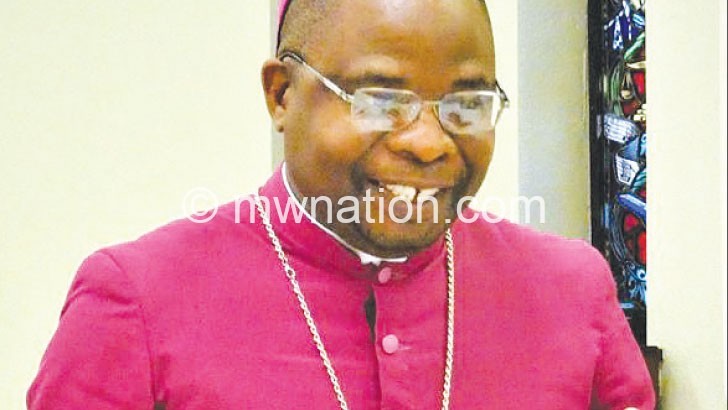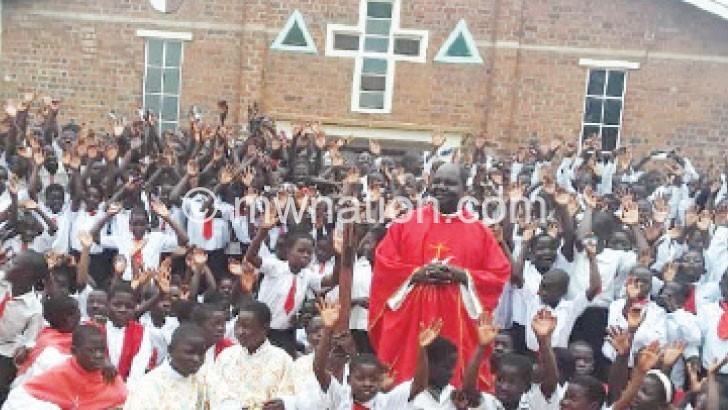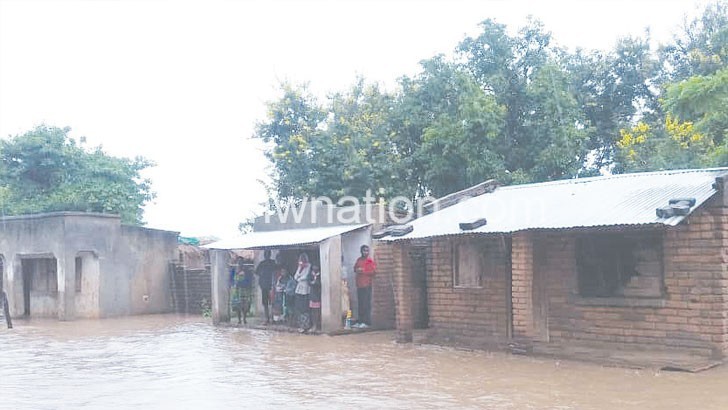Demystifying Freemasonry
 Are they the illuminati? Are they the people paving the way for the Anti-Christ and the New World Order? Are they satanic? Or are they not just hated for being rich and illustrious? BRIGHT MHANGO looks into the decades-old question of whether Freemasons are what people think they are.
Are they the illuminati? Are they the people paving the way for the Anti-Christ and the New World Order? Are they satanic? Or are they not just hated for being rich and illustrious? BRIGHT MHANGO looks into the decades-old question of whether Freemasons are what people think they are.
A Freemason is a person who knowingly destroys people’s lives for self gain. Freemasons portray themselves as a good charitable fraternity of men. They own the media so they get to say what they want. They have infiltrated all of society. It is nothing less than an international money-making scam. Did you know that the ninth degree Masons take their vows to kill for Freemasonry?”
That is how some people see Freemasons and the brutal claims above are from a grouping called Second Family based in the UK. And they are just one of a thousand conspiracy theorists who view Freemasons as devil worshipers.
But who are Freemasons, then? That question can better be answered by one man; Gordon Sheppard, Grand Lodge of Scotland representative in Malawi.
So what is freemasonry?
“Freemasonry is an ancient and honourable society… a candidate for Freemasonry must be a respectable man, over the age of 21 years with a belief in the Supreme Being, no criminal record, adequate funding to pay the dues and have two qualified members to propose him,” answered Sheppard in an email interview.
He said a person’s religion is precious and personal to them and that discussion on matters of religion is not allowed, effectively throwing out the question of what religion guides Freemasonry.
To conspiracy theorists such as Second Family or the Vigilant Citizen, Freemasons are the New World Order’s foot-soldiers and linked to other secret societies, orders and cults.
These theorists hate the fact that freemasons do their meetings in secrecy, some loathe the fact that the fraternity is for men only while others detest the elitist nature of the group, since most members are well-off.
Talk is rife that the Masonic temple in Blantyre is cult-like, that all manner of debauchery goes on behind its walls.
I asked regular bystanders where I could get a satanic temple in Lilongwe and all of the people I spoke to pointed to a Masonic temple.
The square and compass, a symbol that generally represents the Freemason, is interpreted by some as two people having sex, with the compass being a man and the square a woman.
Some say Masons designed the pyramids, plotted the French Revolution and are keeping the flame alive for the Knights Templar.
Some Muslim anti-Masons argue that Freemasonry promotes the interests of the Jews around the world and that one of its aims is to rebuild the Temple of Solomon in Jerusalem after destroying the Al-Aqsa Mosque.
In 1933, the Orthodox Church of Greece officially declared that being a Freemason constitutes an act of apostasy and thus, until he repents, the person involved with Freemasonry cannot partake of the Eucharist.
The Catholic Church also doesn’t allow or see eye to eye with Freemasonry for teaching what it terms the ‘naturalistic deistic religion which is in conflict with Church doctrine.’ A number of Papal pronouncements have thus been issued against Freemasonry.
But to Sheppard, Masons are not Satanists
“A Freemason practices three great but simple principles: Brotherly love, relief and truth. Brotherly love is the concern which each Freemason has for his brother, which is readily shown by tolerance and respect for beliefs, opinions and practices of his fellows and his willingness to care for his Brother and that Brother’s dependants.
“Relief; the Freemason is by nature and teaching a charitable man. He will cheerfully and kindly assist those less fortunate (whether Freemasons or not!). He will care for and support his community – local, national and international.
“Truth; The Freemason believes in truth in all things and integrity in his personal, business and public life, in fair dealings and firm standards of decency and morality,” said Sheppard.
In Malawi, Freemasons are there and have stepped in to help in many instances and most members are the respectable and executive cream of society.
For decades, Masons in Malawi have given material support to many spheres, including old soldiers, Mountain View School for the Deaf, Dzanja la Chifundo Orphanage, Chombo Children’s Home and Jacaranda Children’s Home.
Masons also paid big sums to rebuild classrooms at Lusako Primary School in Karonga damaged by the earthquake that struck the district over a year ago.
Ulama Council is the voice of sheikhs
The Muslim Association of Malawi (MAM) recently went to the polls to elect members of the Ulama Council which oversees the activities of Sheikhs in the country. JAMES CHIMPWEYA talked to MAM national chairperson Sheikh Muhammad Idrissah to discuss the role of the Mufti and Ulama Council in Islam.
Who is the Mufti?
The Mufti is a person who is grounded in Islam, one who has studied Islam inside out and has vast experience in the religion. His roles are to oversee the spiritual side of the religion and to resolve differences among sheikhs.
You have elected chairperson of the Ulama Council. Tell us something about the council.
The Ulama Council is the committee of sheikhs in the country. Members are elected from all districts. Elections for the council are conducted by sheikhs themselves. The function of the council is to provide a platform for sheikhs to assist one another, especially on matters of welfare. Sheikhs have their own shortcomings; as such, they needed a forum to deal with such issues. The council will be reporting to the Mufti. The council chair is under the Mufti because this is the highest office.
Who are members of the council?
Chairperson of the council is Sheikh Mussa Matola who is deputised by Sheikh Abrahama Kalako. The secretary is Sheikh Cassim Chongolo while Sheikh Ali Ali Kennedy is his deputy. Sheikh Yusuf Chibwana is the treasurer and his deputy is Bakar Duncan. The position of publicity secretary went to Sheikh Dinala Chabulika, who is national coordinator of the Islamic National Information Bureau.
What necessitated the elections?
Previously, we only had an interim committee and there was a need to have a full committee for the sheikhs so that they have a forum where they can discuss issues that affect them. This will bring unity among sheikhs.
What are your expectations of this full council?
Our expectations are to see the council work vigilantly. We also expect to have the best Ijtima because the organisation of the national Ijtima is one of their tasks. The Muslim Association of Malawi (MAM) also expects to get information from the council on important issues and not from individual sheikhs.





